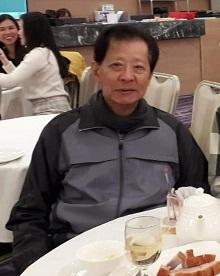The Centre for Health Protection (CHP) of the Department of Health is today (January 4) investigating a case of severe paediatric influenza A infection.
The case involves a 7-year-old boy with good past health, who has presented with fever, cough and runny nose since December 29 and convulsion on January 3. He attended North District Hospital for medical advice on January 3 and was admitted to the paediatric intensive care unit of Prince of Wales Hospital on the same day for further management. He is now in a stable condition.
His nasopharyngeal aspirate tested positive for influenza A (H1) virus upon laboratory testing. The clinical diagnosis was influenza A infection complicated with meningoencephalitis.
Initial enquiries revealed that the patient had not received seasonal influenza vaccination for the current season and had no travel history during the incubation period. His younger sister had upper respiratory tract infection (URI) symptoms recently and was admitted to Union Hospital for treatment. She is now recovered and was discharged. His father and grandmother also had URI symptoms and sought medical attention but no hospitalisation is required. Three of them are all in a stable condition. His other home contact has remained asymptomatic so far.
The CHP's investigations are ongoing.
"Hong Kong has entered the 2018-19 winter influenza season. We anticipate that local seasonal influenza activity will continue to rise in the coming weeks and remain at an elevated level for some time. Members of the public should remain vigilant for protection against influenza," a spokesman for the CHP said.
"Particularly, children, people aged 50 to 64 years, the elderly and those with underlying illnesses who have not yet received influenza vaccination this season are urged to get vaccinated as early as possible to prevent seasonal influenza as it takes about two weeks for antibodies to develop in the body after vaccination. They should promptly seek medical advice if influenza-like symptoms develop so that appropriate treatment can be initiated as early as possible to prevent potential complications. Parents and carers are reminded to render assistance in prevention, care and control for vulnerable people," the spokesman added.
Besides receiving seasonal influenza vaccination as early as possible for personal protection, the public should maintain good personal and environmental hygiene for protection against influenza and other respiratory illnesses. For more information, please visit the CHP's influenza page and weekly Flu Express.
